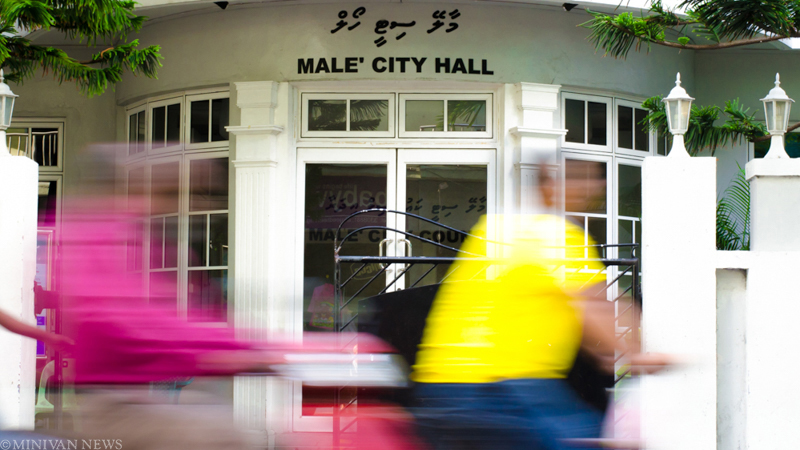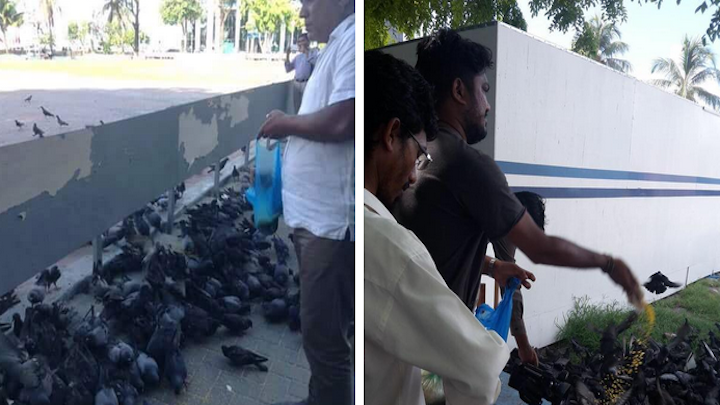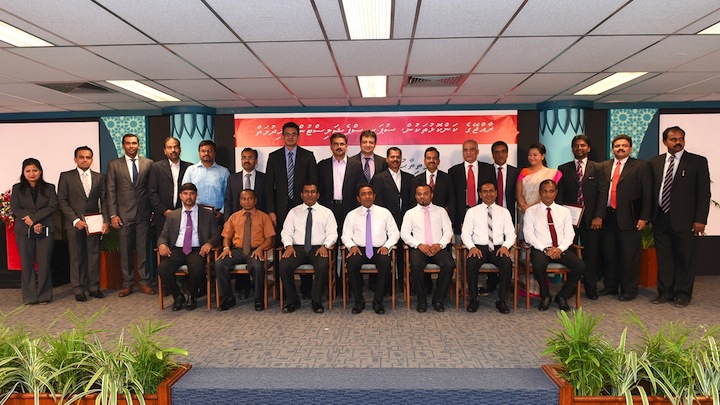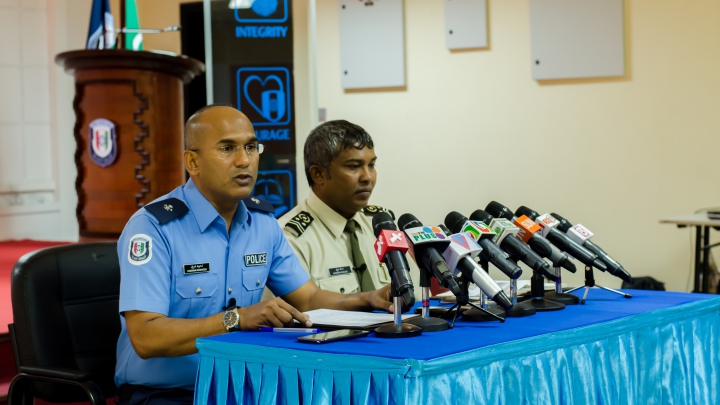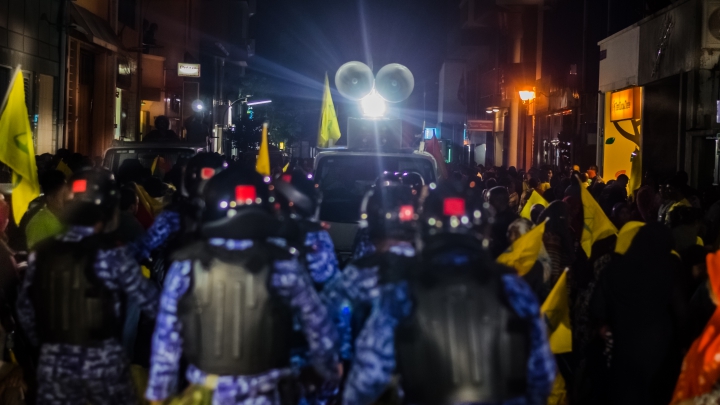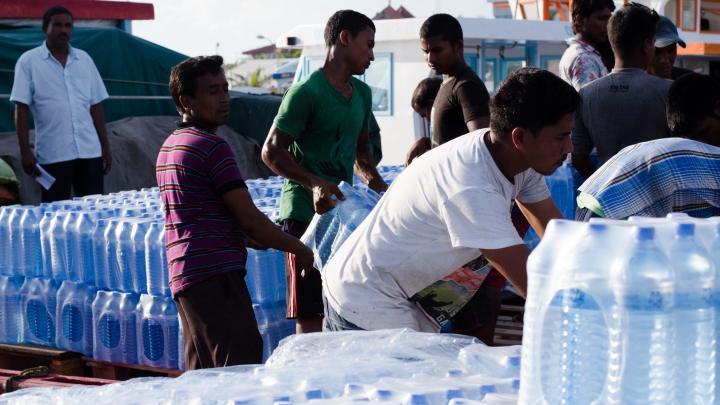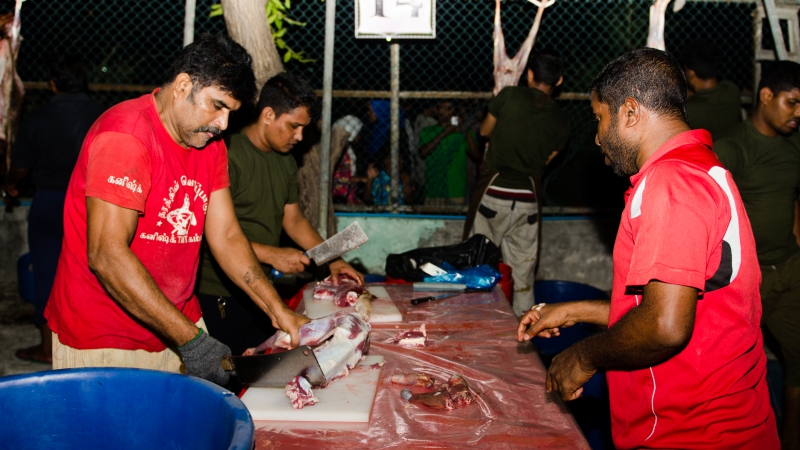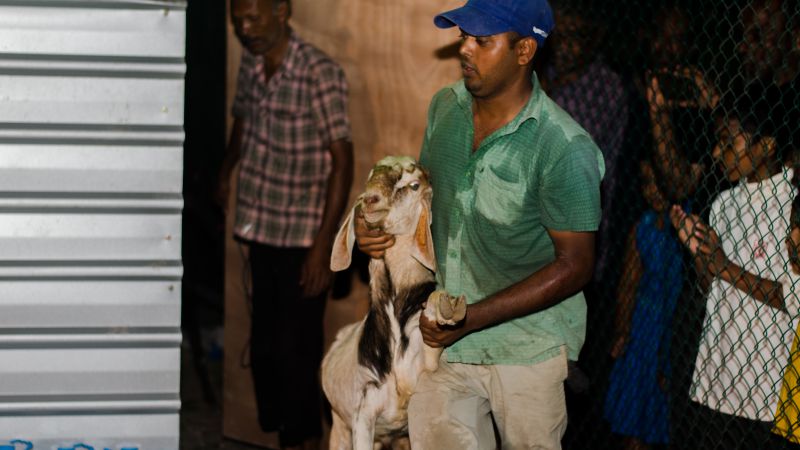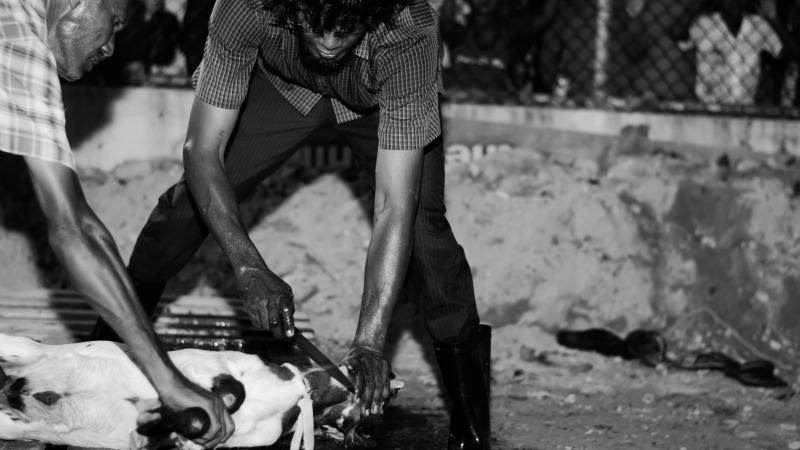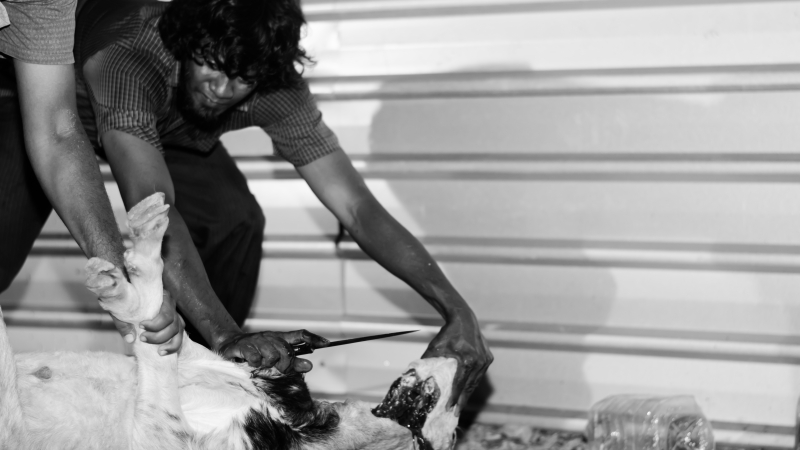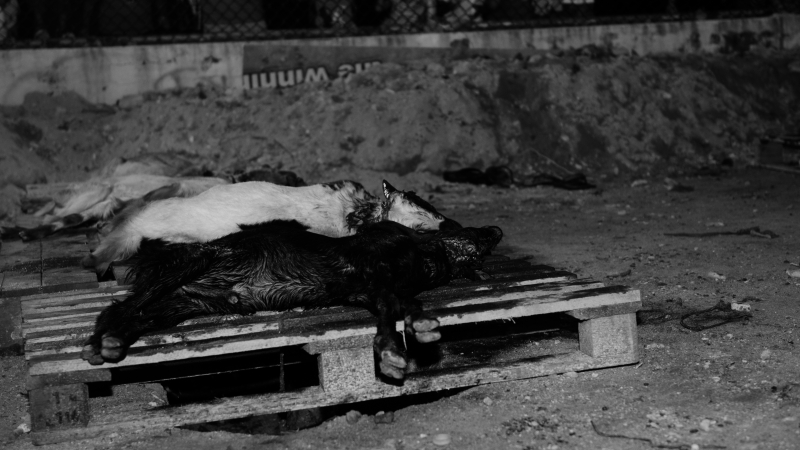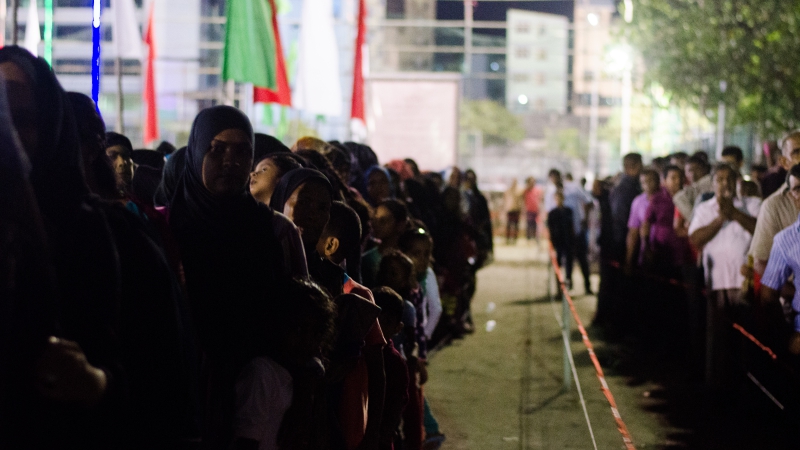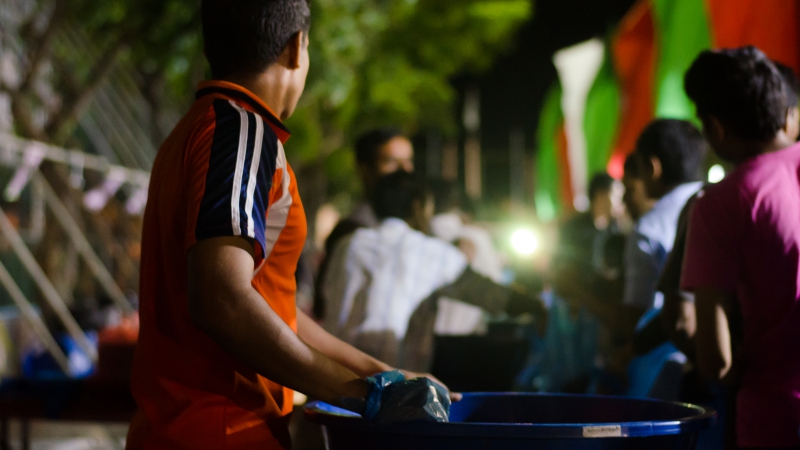Every January, councillors on the central Maldivian island of Baa Atoll Goidhoo switch on the island’s water desalination plant in preparation for the dry season.
In doing so, the council hopes to scrape through the blistering heat of the four-month-long northeastern monsoon without having to rely on others to provide its 700 inhabitants with clean water.
However, this year the council was not able to fire up the plant because of severe budget constraints and maintenance issues.
“The government is not giving us money to repair it. How can we fix and run the plant while we can’t afford its electricity bill?” asked council president Mohamed Amir.
“The households have now run out of water,” Amir said.
“Every dry season we have the same problem.”
Amir had no choice but to notify the National Disaster Management Centre of severe water shortages, becoming one of over 69 islands to have reported droughts this year alone.
Since its inception in 2004 after the Indian Ocean tsunami, the centre has been providing water to about 80 of the Maldives’ 200 inhabited islands each dry season for the last ten years, says Hisaan Hassan, a spokesman for the centre.
The tsunami severely contaminated groundwater in several islands, forcing inhabitants to look up to the skies for rainwater instead.
When a fire in the capital, Malé, cut off water supplies last year, the crisis drew global media attention and prompted the public to ask how prepared the government is for an emergency water cutoff.
However, islanders who face the same problem every year remain hopeless, with no permanent solution in sight.
Environmental consultant and water expert Fathimath Saeedha says that the government needs to immediately come up with strategic, yet island-specific solutions.
Contaminated groundwater
Unlike in Malé, where the groundwater is heavily polluted due to over-consumption, islanders in atolls used to rely on groundwater for consumption.
However, thanks to a rapid population increase and the arrival of appliances such as washing machines, groundwater consumption in the islands has increased above the rate at which groundwater is naturally replenished, said the environment ministry.
In addition, the ministry points the finger towards the 2004 Indian Ocean tsunami, which heavily polluted many islands’ fresh water table, lying one to 1.5 meters below the soil surface. The tsunami killed at least 82 people in the Maldives and caused $470m of damage.
However, a United Nations Environmental Programme tsunami impact study in 2005 estimated that only 39 islands’ groundwater had been suitable for drinking even before the tsunami.
Water expert Saeedha also pointed out that poorly constructed septic tanks in the islands have contributed to water contamination.
“People built septic tanks on their own, which led to domestic waste leaking into the water table,” said Saeedha.
With the groundwater contaminated, inhabitants then had to rely on rainwater for consumption. In 2005, the government provided islands with large numbers of storage tanks to store rainwater.
However, with low average rainfall during the dry season, numerous islands are left in a drought every year, forced to rely on the disaster centre for drinking water.
Ready for droughts
Umar Fikry, another spokesman for the disaster centre, says that it has urged all island councils to inform the centre of water shortages in advance.
“We are prepared and ready for the water shortages every year,” Umar said.
He says that islands usually report water shortages to the centre when they are down to one month’s supply.
However, the National Disaster Management Centre is among those questioning whether the centre should be called upon to deal with shortages every year.
“We spend an average of MVR 5 million (US$ 330,000) on delivering water to the islands [each year]. The problem cannot be solved by the disaster centre alone,” said the centre’s Hisan Hassan.
Hisan believes it is time for everyone from the environment ministry to island councils and the general public to get involved in looking for a permanent solution.
Individuals have to keep in mind this happens every year and focus on better water usage, while councils should work on getting better storage systems in place for the dry season, said Hisaan.
The Environment Ministry meanwhile is running a water programme aiming to create an integrated network of island water storage containers in 30 strategic locations.
Three of the island storage locations have been completed, while seven are undergoing construction. Furthermore the ministry has secured finance to build 14 new desalination plants, it said.
Unsuitable emergency plans
With the disaster centre called upon to provide large quantities of water, some islands have criticised the quality of the water that arrives.
“People did not use the water because there was a pungent smell in it. We should be provided with good quality water,” complained Baa Atoll Dharavandhoo council president Hussein Nazim.
Dharavandhoo is home to one of the busiest regional airports in the country, bringing in tourists from the capital to the atoll’s eight resorts.
Nazim said that he was told that the water arrived from nearby Dhuvaafaru in the storage area of a fishing boat.
Some islanders had to resort to pumping water from households lucky enough to have clean well water, he added.
A resident of nearby Goidhoo said that it is “immensely difficult” to fulfill essential water needs during the dry season.
“Every house has a water tank which runs out during the dry season. Now we have to go to the water plant on the beach through the boiling sun,” she complained.
“Tailor made solutions”
Water expert Faathimath Saeedha says there is no one overall solution to the annual water crisis, with different areas instead needing a “tailor-made solution”.
“Every island has very specific needs which need to be addressed,” she said. “Then only can we reach a permanent solution.”
It is important for the government to come up with a strategic plan to address the root cause of the issues for each island, she said.
Back in Goidhoo, council president Amir has been able to fire up the desalination plant with a “temporary fix which will last the current dry season”.
He believes that the situation will repeat itself again next year, with the councillors forced to resort to the barely functioning water plant, hoping for the best.
Likes (4)Dislikes
(4)Dislikes (1)
(1) 